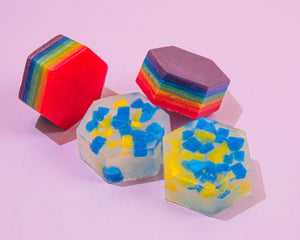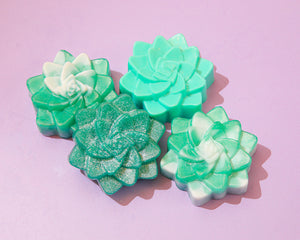Close your eyes and remember summer camp: the thrill of waking up to a day packed with adventures, the satisfaction of mastering new skills, the joy of evening campfires with s'mores and stories, the pride of earning badges and completing challenges. Now imagine if you could bottle that magic and pour it directly into your own backyard—without the hefty price tag, homesickness tears, or wondering if your kids remembered to brush their teeth.
Welcome to the revolution of backyard summer camp, where ordinary yards transform into adventure headquarters and regular families become camp directors of their own magical experiences. This isn't about replacing traditional camp—it's about discovering that the essence of camp magic lives in intentional adventure, creative challenges, and the simple joy of trying new things together.
Ready to turn your space into Camp [Your Family Name]? Let's dive into a summer of backyard adventures that will have your kids bragging to their friends about the epic camp happening right at home.
The Essential Elements of Camp Magic
What Makes Camp Feel Like Camp?
Before transforming your space, it's important to understand what creates that special "camp feeling" that kids crave:
Structured adventure: Days filled with varied activities and clear schedules Skill-building challenges: Opportunities to try new things and celebrate improvement Special traditions: Unique rituals and ceremonies that create belonging and anticipation Independence within safety: Freedom to explore and make choices within protected boundaries Community building: Shared experiences that create bonds and inside jokes Nature connection: Time outdoors engaging with the natural world Creative expression: Arts, crafts, and performance opportunities Physical challenges: Activities that push comfort zones safely
Week-by-Week Camp Themes
Week 1: Wilderness Survival Academy (Ages 6-12)
Transform your backyard into a wilderness training ground where kids learn survival skills through hands-on challenges.
Monday: Shelter Building Bootcamp
- Challenge: Build weatherproof shelters using tarps, rope, and natural materials
- Skills learned: Knot tying, engineering principles, teamwork, problem-solving
- Camp activity: Test shelters with sprinkler "rainstorms"
- Badge earned: Master Builder
Tuesday: Water Procurement and Purification
- Challenge: Set up rainwater collection systems and learn about water safety
- Skills learned: Scientific method, health awareness, resource conservation
- Camp activity: Build solar water purification systems using clear bottles
- Badge earned: Water Specialist
Wednesday: Fire Safety and Outdoor Cooking
- Challenge: Learn fire safety rules and cook meals over controlled fires (or grills)
- Skills learned: Safety protocols, cooking skills, nutrition planning
- Camp activity: Prepare entire meals using only outdoor cooking methods
- Badge earned: Fire Master
Thursday: Navigation and Mapping
- Challenge: Create detailed maps of your property and learn compass use
- Skills learned: Geography, measurement, direction skills, attention to detail
- Camp activity: Set up treasure hunts using created maps and compasses
- Badge earned: Navigator
Friday: Wilderness Olympics
- Challenge: Compete in survival skill competitions and demonstrate mastery
- Skills learned: Applying learned skills under pressure, sportsmanship, confidence
- Camp activity: Timed shelter building, fire starting contests, navigation races
- Badge earned: Survival Expert
Week 2: Mad Science Laboratory (Ages 5-12)
Turn your backyard into an outdoor laboratory where kids become researchers and inventors.
Monday: Chemistry Explosion Day
- Morning: Volcano eruptions using baking soda and vinegar reactions
- Afternoon: Bramble Kids' soap making experiments to learn about chemical combinations
- Evening: Elephant toothpaste demonstrations (adult supervision required)
- Science focus: Chemical reactions, cause and effect, hypothesis testing
Tuesday: Physics Fun House
- Morning: Build ramps and test how different angles affect speed and distance
- Afternoon: Create pendulums and test variables that affect swing patterns
- Evening: Engineering challenges with bridges that can hold increasing weight
- Science focus: Motion, gravity, engineering principles, data collection
Wednesday: Biology Field Studies
- Morning: Microscope explorations of pond water, leaves, and insects
- Afternoon: Dissection activities using flowers or safe plant materials
- Evening: Create ecosystem observation stations for ongoing bug watching
- Science focus: Life cycles, habitats, classification, scientific observation
Thursday: Weather Station Operations
- Morning: Build weather instruments: rain gauges, wind vanes, barometers
- Afternoon: Document weather patterns and make predictions
- Evening: Create cloud identification guides and track cloud types
- Science focus: Meteorology, data recording, pattern recognition, prediction
Friday: Invention Convention
- Morning: Design and build inventions to solve real family problems
- Afternoon: Test inventions and improve designs based on results
- Evening: Present inventions to family members and explain how they work
- Science focus: Engineering design process, problem solving, presentation skills
Week 3: Creative Arts Academy (Ages 4-12)
Transform your space into an arts campus where every surface becomes a canvas for creative expression.
Monday: Master Artist Studio
- Morning: Large-scale collaborative murals on fence or garage walls (washable paint)
- Afternoon: Sculpture garden creation using natural and recycled materials
- Evening: Art gallery opening with family as visitors viewing completed works
- Art focus: Color theory, composition, three-dimensional thinking, presentation
Tuesday: Textile Arts Workshop
- Morning: Tie-dye clothing and fabric using natural and artificial dyes
- Afternoon: Weaving projects using cardboard looms and various materials
- Evening: Fashion show displaying created textiles and clothing
- Art focus: Pattern creation, traditional crafts, wearable art, cultural traditions
Wednesday: Performance Arts Theater
- Morning: Write, direct, and rehearse original plays or adapt familiar stories
- Afternoon: Create costumes and sets using household and craft materials
- Evening: Perform completed productions for family and neighbor audiences
- Art focus: Storytelling, character development, public speaking, collaboration
Thursday: Music and Movement
- Morning: Build musical instruments using recycled containers and household items
- Afternoon: Compose original songs and learn about rhythm and melody
- Evening: Concert performance featuring original compositions and choreography
- Art focus: Musical theory, rhythm, creativity, performance confidence
Friday: Mixed Media Masterpieces
- Morning: Combine all week's techniques into complex artistic projects
- Afternoon: Document artistic journey through photography and journaling
- Evening: Portfolio presentation explaining artistic growth and favorite projects
- Art focus: Integration of skills, reflection, artistic vocabulary, self-assessment
Week 4: Adventure Sports Training (Ages 6-12)
Create athletic challenges that build skills, confidence, and team spirit without requiring expensive equipment.
Monday: Obstacle Course Engineering
- Morning: Design and build complex obstacle courses using household items
- Afternoon: Time trials and technique improvement through repeated practice
- Evening: Obstacle course competitions with different categories and awards
- Skills focus: Gross motor development, problem solving, persistence, friendly competition
Tuesday: Water Sports Spectacular
- Morning: Swimming technique improvement and water safety skill practice
- Afternoon: Pool or sprinkler games that build water confidence and skills
- Evening: Water relay races and team challenges for groups or families
- Skills focus: Water safety, coordination, teamwork, overcoming fears
Wednesday: Track and Field Olympics
- Morning: Set up running, jumping, and throwing events in available space
- Afternoon: Practice techniques and work on personal best improvements
- Evening: Mini Olympics with opening ceremonies and medal presentations
- Skills focus: Personal goal setting, measurement, sportsmanship, celebration
Thursday: Team Sports Skills
- Morning: Learn and practice skills from various sports: soccer, basketball, baseball
- Afternoon: Modified games that work in smaller spaces with fewer players
- Evening: Tournament play with rotating teams and multiple game formats
- Skills focus: Cooperation, rule following, strategy, inclusive play
Friday: Adventure Challenge Day
- Morning: Combine all week's skills into complex adventure challenges
- Afternoon: Team-building activities that require cooperation and communication
- Evening: Awards ceremony celebrating individual improvement and team achievements
- Skills focus: Leadership, problem solving, celebration, reflection
Camp Traditions That Create Magic
Daily Rituals That Build Anticipation
Morning Flag Raising: Start each camp day with a simple ceremony that marks the transition from regular day to camp adventure
Camp Songs: Learn or create simple songs that become your family's camp anthems
Badge Ceremonies: Create a system for recognizing skill development and challenge completion
Evening Reflection: End each day sharing favorite moments and looking forward to tomorrow's adventures
Weekly Special Events
Talent Shows: Opportunities for kids to showcase skills developed during camp weeks
Camp Cookouts: Special meals prepared and eaten outdoors using camp cooking methods
Night Adventures: Flashlight games, stargazing sessions, or backyard "camping" experiences
Visitor Days: Invite friends, neighbors, or relatives to participate in camp activities
DIY Camp Infrastructure
Creating Camp Atmosphere on a Budget
Camp Signs and Decorations:
- Create wooden signs marking different "areas" of your camp
- String lights or flags to define camp boundaries and create festive atmosphere
- Design camp logo and use it on homemade t-shirts, flags, and certificates
Activity Stations:
- Arts and Crafts Pavilion: Covered area with organized supplies for creative projects
- Science Laboratory: Table or area designated for experiments with safety equipment nearby
- Skills Practice Areas: Defined spaces for different types of physical or mental challenges
- Quiet Zones: Comfortable areas for reading, journaling, or calm activities
Storage and Organization:
- Activity Bins: Organized containers for each type of camp activity
- Equipment Check-out: System for managing shared camp equipment like sports gear
- Project Display: Areas for showcasing completed work and ongoing projects
- Weather Backup: Indoor alternatives ready for rainy or extremely hot days
Safety and Supervision
Adult-to-Child Ratios: Ensure appropriate supervision for all activities, especially those involving tools, fire, or water
Emergency Preparedness: First aid supplies accessible, emergency contacts posted, and safety rules clearly established
Age-Appropriate Challenges: Activities scaled to be challenging but achievable for each participant's developmental level
Communication Systems: Clear ways for kids to get adult help when needed during independent activities
Adapting Camp for Different Ages
Ages 4-6: Discovery Camp
Focus on sensory exploration, basic skill development, and short activities with immediate success.
Activity modifications:
- Shorter time blocks: 15-20 minute activities with clear transitions
- Safety focus: Constant supervision and tools appropriate for small hands
- Success emphasis: Projects where "mistakes" are impossible or easily fixed
- Adult partnership: Activities done alongside adults rather than independently
Ages 7-9: Adventure Camp
Emphasize skill building, moderate challenges, and group cooperation.
Activity modifications:
- Extended projects: 30-45 minute activities that build specific skills
- Independence building: Some activities kids can do with minimal adult oversight
- Competition introduction: Friendly competitions that emphasize personal improvement
- Responsibility taking: Opportunities to help with camp setup and organization
Ages 10-12: Leadership Camp
Focus on advanced skills, leadership opportunities, and complex problem-solving.
Activity modifications:
- Complex challenges: Multi-day projects requiring planning and persistence
- Teaching opportunities: Older kids help younger participants learn new skills
- Real-world applications: Activities that connect to adult skills and interests
- Decision-making: Opportunities to help plan and modify camp activities
Camp Crafts with Educational Value
Science-Based Making Projects
Solar Ovens: Build and test ovens that cook food using only sun power
- Science concepts: Solar energy, heat transfer, insulation, temperature measurement
- Camp application: Use for cooking camp snacks and meals
- Skills developed: Engineering design, testing and improvement, practical application
Weather Instruments: Create tools for measuring and predicting weather
- Science concepts: Meteorology, measurement, data collection, pattern recognition
- Camp application: Daily weather monitoring and prediction challenges
- Skills developed: Scientific observation, record keeping, hypothesis formation
Bath Bomb Chemistry: Bramble Kids' bath bomb kits for hands-on chemistry learning
- Science concepts: Chemical reactions, measurement precision, pH testing
- Camp application: Create camp spa experiences and gifts for family
- Skills developed: Following instructions, safety awareness, chemical understanding
Creating Camp Memories
Documentation Systems
Camp Journals: Daily writing and drawing about camp experiences, skills learned, and favorite activities
Photo Documentation: Designated camp photographer role that rotates among participants
Video Diaries: Short daily videos explaining camp activities and personal reflections
Portfolio Creation: Collecting completed projects, certificates, and photos into camp memory books
Sharing Camp Success
Family Presentations: End-of-week shows where kids demonstrate skills and share learning
Community Involvement: Invite neighbors to special camp events or showcase days
Social Media Sharing: Age-appropriate sharing of camp highlights with extended family
Next Summer Planning: Involving kids in planning improvements and new themes for future camp sessions
Budget-Friendly Camp Solutions
Free and Low-Cost Camp Supplies
Natural materials: Sticks, stones, leaves, and other outdoor materials for building and crafting
Recycled materials: Cardboard boxes, plastic containers, and paper for engineering projects
Library resources: Books about camp activities, nature guides, and skill-building instructions
Community donations: Ask neighbors for surplus sports equipment, craft supplies, or camping gear
High-Impact Investments
Basic tools: Simple tools like hammers, screwdrivers, and measuring tools that enable many projects
Craft supply basics: Glue, tape, markers, and paper that support numerous creative activities
Sports equipment: A few quality balls, ropes, and games that support various physical activities
Safety equipment: First aid supplies, sunscreen, and safety gear that enable more adventurous activities
Extending Camp Throughout Summer
Maintaining Camp Momentum
Weekly theme changes: New focus areas that maintain excitement and challenge
Progressive skill building: Activities that build on previous weeks' learning and experience
Special event planning: Bigger adventures or celebrations that kids can anticipate
Friend integration: Opportunities for kids to share camp experiences with peers
Transitioning Back to School
Skill showcase: Opportunities to demonstrate camp-learned skills in school contexts
Confidence building: Recognition of growth and new abilities developed during camp
Continuing interests: Ways to pursue camp-discovered interests during the school year
Next summer anticipation: Planning and dreaming about future camp adventures
The magic of summer camp isn't found in expensive facilities or professional counselors—it's created through intentional adventure, skill-building challenges, and the joy of discovering new abilities in a supportive environment. Your backyard contains all the raw materials needed for unforgettable summer experiences.
This summer, become the camp director of your family's greatest adventure. Watch as ordinary days transform into extraordinary memories, as everyday skills become badge-worthy accomplishments, and as your backyard becomes the destination your kids' friends wish they could visit.
At Bramble Kids, we believe every family deserves access to camp-quality experiences that build skills, confidence, and joy. Our hands-on activity kits are designed to bring professional camp programming directly to your backyard—because the best adventures happen when families unplug, unbox, and create magical experiences together.
Your greatest summer adventure is waiting right outside your door.



